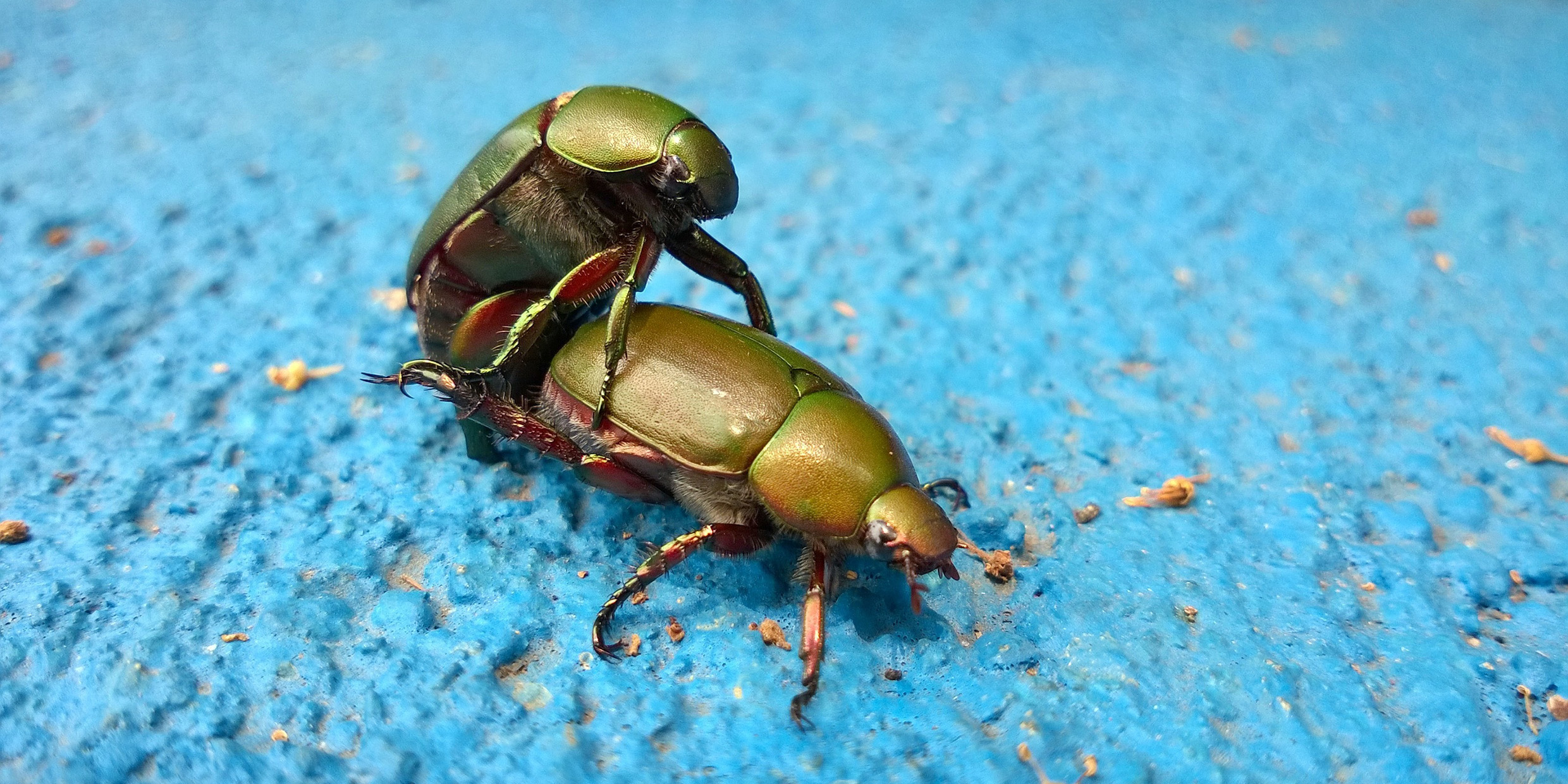Originally published 27 July 1987
Some years ago, the humorists James Thurber and E. B. White wrote a book called Is Sex Necessary? It was not an altogether frivolous question and any biologist can tell you the answer: No.
Moreover, sex is a terribly inefficient way to go about the business of reproduction, fraught with dangers, blind alleys, and wasted resources.
Humans are so preoccupied with sex that we tend to overlook the fact that life would be much simpler without it. I’m not talking about abstinence, but about asexual methods of reproduction, pure and simple — cloning, or sending out shoots, or parthenogenesis (reproduction by means of unfertilized eggs, seeds, or spores).
What a lot of energy we waste, as a species, thinking about sex, talking about it, and doing it. And apparently it’s not much different for the birds and the bees — as even Thurber and White were perceptive enough to realize. Given all the fuss and bother, biologists wonder why sex evolved at all, and what sort of evolutionary pressures maintain it.
Some of us were taught in school that amoebas are the only creatures that reproduce without sex — by simply splitting down the middle. In fact, many higher-order animals and plants reproduce asexually.
Why bother?
Asexual species are especially common among the insects. In 1932 an all-female variety of fish was found in the Gulf of Mexico, a discovery which extended asexuality to the vertebrates. There are many species of lizards that make do with one gender. In principle, there is nothing that requires even humans to come in two varieties. “I love the idea of there being two sexes, don’t you?” says the overbearing woman in a famous Thurber cartoon to her doubtful male companion. But as much as we might “love the idea” of two sexes, our opinion has little status as a biological imperative.
So why sex?
For a long time the standard story among evolutionists was that sexual reproduction increases variability among offspring by mixing the genes of two parents. Variation helps populations adapt quickly to new competitors or predators and changes in the physical environment. In this traditional view, sex speeds up evolution: In a world ruled by natural selection, the species that stands still is lost.
Or so it was according to Darwinian dogma. But in fact, many biologists question whether sexual selection confers any clear advantage in the struggle to survive. Asexual species of “higher life” seem to survive quite nicely, and with as much genetic variability as sexual species. Consider the dandelion, an asexually reproducing plant: No one doubts its adaptive success. The same can be said for certain asexual weevils that show more variability than their sexual cousins, and more success adapting to new environments. Further, computer simulations of evolving populations show that a sexual mixing of genes has little or no effect on rates of evolution.
The questionable value of sex must be measured against the “cost” of sexual reproduction. Sexual organisms must go to the bother of finding and courting a mate, a chancy business even for creatures less finicky than ourselves. Sexual activity involves increased risk of predation and contagious disease. For males that swim or fly, a penis can be a bit of a drag. Females especially pay a high price for sex: They sacrifice one-half of their genetic legacy to a male who typically offers a negligible investment in parenthood.
Aphids and aphids and aphids
By contrast, the female aphids that infect the cabbages in your garden do very well without males. They produce daughter aphids in astonishing numbers with no bother at all, parthenogenetically. Sometimes granddaughter aphids begin to develop while the daughters are still forming inside the mother’s abdomen — aphids inside of aphids inside of aphids. It is all rather simple and bad news for the cabbages. From a Darwinian point of view, the asexual aphids seem wonderfully fit.
But the fact remains that the overwhelming majority of the millions of species on Earth do reproduce sexually, and as far as I can tell no one knows why. Every biologist who has considered the origin and persistence of sex seems to have a different theory — a sure sign that no theory is particularly viable. Sex is a Darwinian embarrassment, a bit of evolutionary monkey business that no one can satisfactorily explain.
Perhaps, as Boston University biologist Lynn Margulis believes, sex is the legacy of a series of useful evolutionary accidents that took place in bacteria more than a billion years ago; it endures because it became inextricably bundled up with the machinery of reproduction. Or perhaps the genes that confer sex endure because, like all genes, it is their business to endure. Perhaps sex does indeed confer some subtle advantage in a dangerous world, a way of staying one step ahead of the competition. Perhaps without a constant “stirring” of the genes we would be more susceptible to parasites, viruses, and other contagions.
Or perhaps James Thurber and E. B. White had it right. According to those tongue-in-cheek philosophers, males and females have always sought, by one means or another, to be together rather than apart. At first they were together by the simple expedient of being unicellular. Later, in the course of evolution, the cell separated, “for reasons which are not clear even today, although there is considerable talk.” The two halves of the original cell have been searching for an appropriate other-half ever since.



